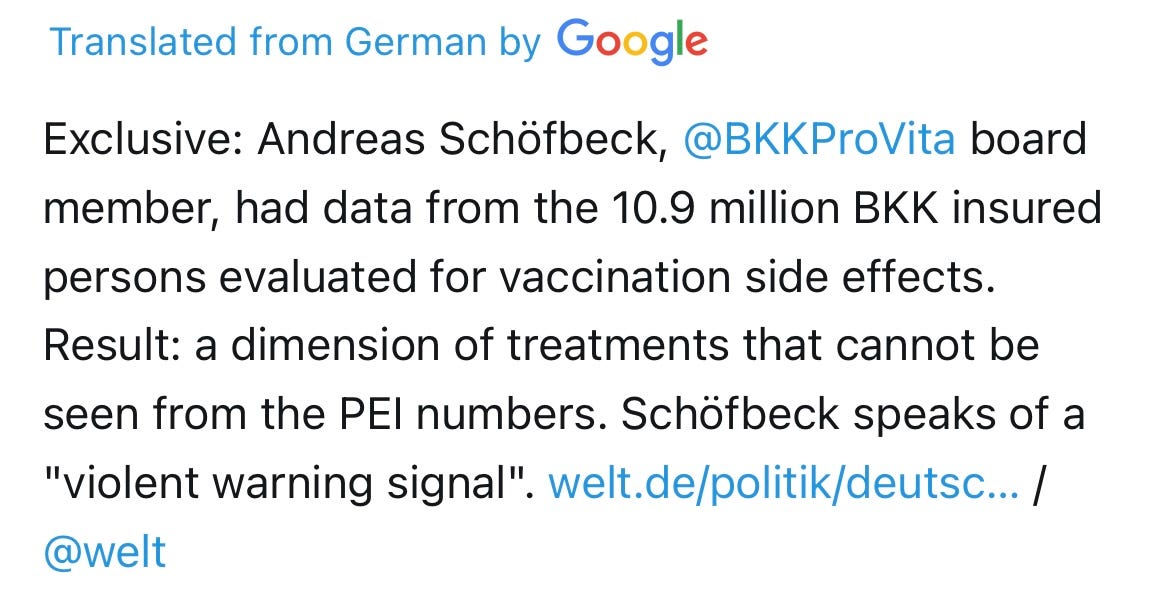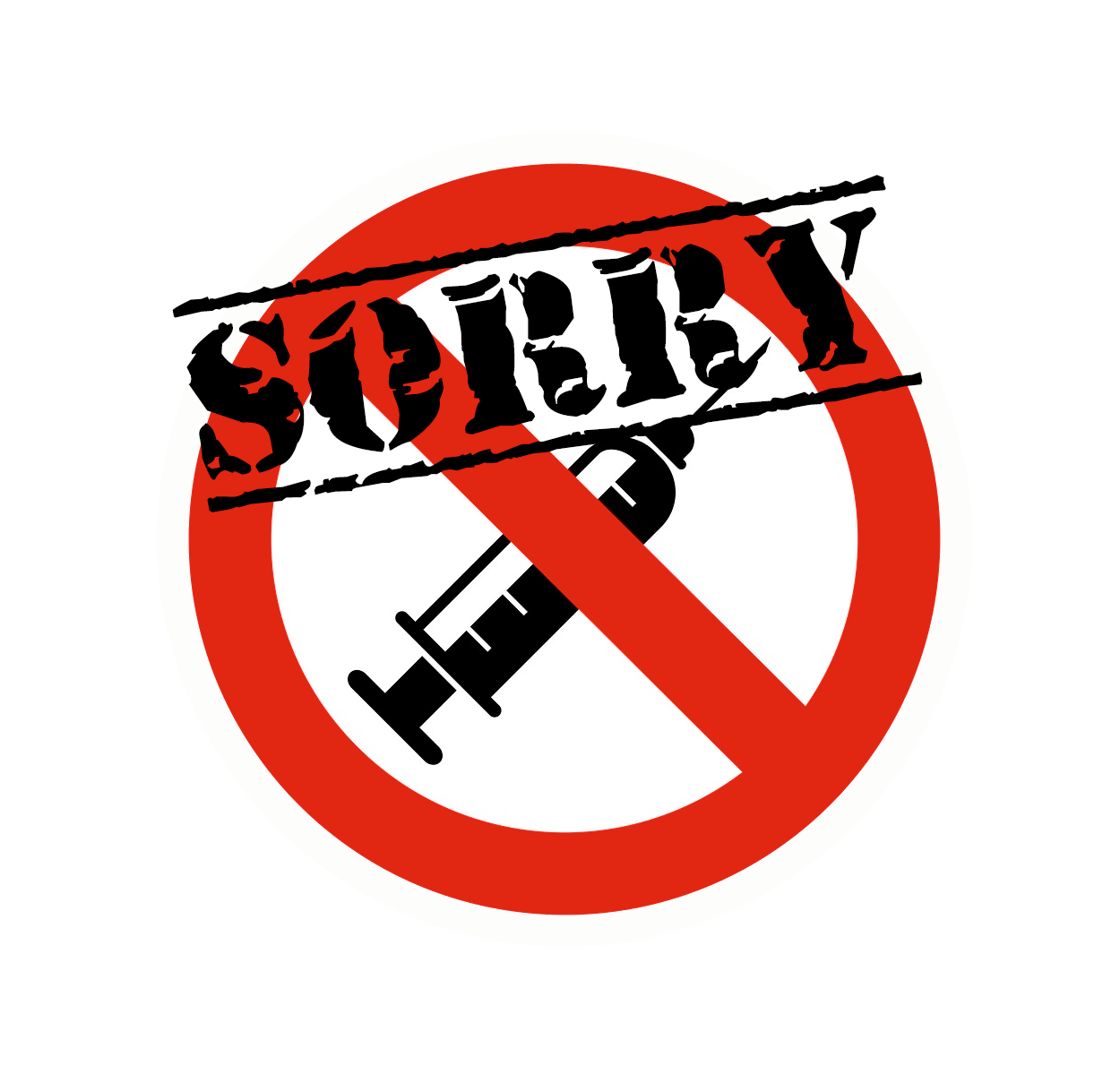English translation?What happened to your vote rusty account?
Colleges
- American Athletic
- Atlantic Coast
- Big 12
- Big East
- Big Ten
- Colonial
- Conference USA
- Independents (FBS)
- Junior College
- Mountain West
- Northeast
- Pac-12
- Patriot League
- Pioneer League
- Southeastern
- Sun Belt
- Army
- Charlotte
- East Carolina
- Florida Atlantic
- Memphis
- Navy
- North Texas
- Rice
- South Florida
- Temple
- Tulane
- Tulsa
- UAB
- UTSA
- Boston College
- California
- Clemson
- Duke
- Florida State
- Georgia Tech
- Louisville
- Miami (FL)
- North Carolina
- North Carolina State
- Pittsburgh
- Southern Methodist
- Stanford
- Syracuse
- Virginia
- Virginia Tech
- Wake Forest
- Arizona
- Arizona State
- Baylor
- Brigham Young
- Cincinnati
- Colorado
- Houston
- Iowa State
- Kansas
- Kansas State
- Oklahoma State
- TCU
- Texas Tech
- UCF
- Utah
- West Virginia
- Illinois
- Indiana
- Iowa
- Maryland
- Michigan
- Michigan State
- Minnesota
- Nebraska
- Northwestern
- Ohio State
- Oregon
- Penn State
- Purdue
- Rutgers
- UCLA
- USC
- Washington
- Wisconsin
High Schools
- Illinois HS Sports
- Indiana HS Sports
- Iowa HS Sports
- Kansas HS Sports
- Michigan HS Sports
- Minnesota HS Sports
- Missouri HS Sports
- Nebraska HS Sports
- Oklahoma HS Sports
- Texas HS Hoops
- Texas HS Sports
- Wisconsin HS Sports
- Cincinnati HS Sports
- Delaware
- Maryland HS Sports
- New Jersey HS Hoops
- New Jersey HS Sports
- NYC HS Hoops
- Ohio HS Sports
- Pennsylvania HS Sports
- Virginia HS Sports
- West Virginia HS Sports
ADVERTISEMENT
You are using an out of date browser. It may not display this or other websites correctly.
You should upgrade or use an alternative browser.
You should upgrade or use an alternative browser.
*BOMBSHELL* CDC ADMITS TO FABRICATING DATA
- Thread starter _glaciers
- Start date

COVID-19 V LYLE CRAWFORD (6 months of attrition)
Lyle Crawford, 42, San Antonio, TX, Fire Engineer, antivaxxer, dead from COVID.Lyle died on the 16th of February 2022 but he did not go out without a fight. It took six months for COVID to finally deliver the knockout blow. We shall start this story by verifying Lyle's right to be included...
 www.sorryantivaxxer.com
www.sorryantivaxxer.com
Nothing kicks the living **** out of you and your inate immune system without taking a significant minority to the bank of CNS and cardio issues. That was known from the nearly 3-years of mRNA influenza virus vaccine trials.Now Berenson out with an urgent memo saying a German database confirms the DoD database findings. These poison jabs are harming millions.

URGENT: A German insurance database of 11 million people reportedly shows a huge increase in severe side effects after Covid jabs
Welt, a major German newspaper, just ran an interview with Andreas Schofbeck, a board member for a Bavarian insurer called BKK Provita. By itsel…alexberenson.substack.com
Had there not been the SARS-CoV #2 global outbreak that we labeled COVID-19, the US FDA and most other regulators would have never approved the initial mRNA vaccines for even the elderly and immunocomprised.
It was never supposed to be this broad ... never. And once the FDA expert panels balked, the FDA leadership just bypassed them ... especially after they rejected the Alzheimer drug!
Nothing kicks the living **** out of you and your inate immune system without taking a significant minority to the bank of CNS and cardio issues. That was known from the nearly 3-years of mRNA influenza virus vaccine trials.
Had there not been the SARS-CoV #2 global outbreak that we labeled COVID-19, the US FDA and most other regulators would have never approved the initial mRNA vaccines for even the elderly and immunocomprised.
It was never supposed to be this broad ... never. And once the FDA expert panels balked, the FDA leadership just bypassed them ... especially after they rejected the Alzheimer drug!

COVID-19 V LYLE CRAWFORD (6 months of attrition)
Lyle Crawford, 42, San Antonio, TX, Fire Engineer, antivaxxer, dead from COVID.Lyle died on the 16th of February 2022 but he did not go out without a fight. It took six months for COVID to finally deliver the knockout blow. We shall start this story by verifying Lyle's right to be included...
 www.sorryantivaxxer.com
www.sorryantivaxxer.com
Nothing kicks the living **** out of you and your inate immune system without taking a significant minority to the bank of CNS and cardio issues. That was known from the nearly 3-years of mRNA influenza virus vaccine trials.
Had there not been the SARS-CoV #2 global outbreak that we labeled COVID-19, the US FDA and most other regulators would have never approved the initial mRNA vaccines for even the elderly and immunocomprised.
It was never supposed to be this broad ... never. And once the FDA expert panels balked, the FDA leadership just bypassed them ... especially after they rejected the Alzheimer drug!
Ivermectin futile for mild to moderate COVID-19, study finds
Filed Under:COVID-19
Mary Van Beusekom | News Writer | CIDRAP News
|
Feb 18, 2022
Early treatment with the antiparasitic drug ivermectin does not lower the risk of severe disease when given to patients with mild to moderate COVID-19, according to a study today in JAMA Internal Medicine.
And a related study in the same journal finds connections between prescribing patterns for ivermectin and hydroxychloroquine by political-party vote share in 2020.
Lack of efficacy, more adverse events
Doctors at 20 Malaysian government hospitals and a COVID-19 quarantine center conducted an open-label, randomized clinical trial on the use of ivermectin in the first week of COVID-19 symptom onset in hospitalized adults 50 years and older with mild or moderate illness and underlying medical conditions. The study took place from May 31 to Oct 25, 2021.Average patient age was 62.5 years, 54.5% were women, 51.8% had received two doses of a COVID-19 vaccine, 75.3% had high blood pressure, 53.5% had diabetes, 37.6% had abnormal cholesterol levels, and 23.9% were obese.
Patients were randomly assigned in a 1:1 ratio to receive oral ivermectin daily for 5 days plus standard care (241 patients) or standard care only (249). Standard care consisted of treatment of symptoms and monitoring of clinical findings, laboratory test results, and chest imaging for signs of disease progression.
Severe disease was defined as hypoxia (low oxygen levels) requiring the use of supplemental oxygen to maintain oxygen saturation at 95% or higher.
Fifty-two of 241 patients in the ivermectin group (21.6%) and 43 of 249 patients in the standard-care-only group (17.3%) became severely ill (relative risk [RR], 1.25; 95% confidence interval [CI], 0.87 to 1.80).
There were no significant differences between the two groups in time to symptom resolution or rates of mechanical ventilation, intensive care unit (ICU) admission, 28-day in-hospital death, or adverse events. Four ivermectin recipients (1.7%) required mechanical ventilation, compared with 10 (4.0%) in the standard-care group (RR, 0.41; 95% CI, 0.13 to 1.30).
Six patients (2.4%) in the ivermectin group were admitted to an ICU, versus 8 (3.2%) in the control group (RR, 0.78; 95% CI, 0.27 to 2.20), and 3 ivermectin recipients (1.2%) and 10 controls (4.0%) died by 28 days (RR, 0.31; 95% CI, 0.09 to 1.11).
Forty-four patients (9.0%) had 55 adverse events, 33 of them in the ivermectin group. The most common adverse event was diarrhea, occurring in 14 (5.8%) in the ivermectin group and 4 (1.6%) in the standard-care group.
Five serious adverse events—four in the ivermectin group—were reported. Two patients had a heart attack, one had severe anemia, and one went into shock owing to fluid loss from severe diarrhea, while one in the control group had arterial bleeding in the abdomen. Adverse events led six patients to stop taking ivermectin and three to withdraw from the study. Thirteen patients (2.7%) died, most from COVID-19 pneumonia; no deaths were attributed to ivermectin.
"The notably higher incidence of AEs [adverse events] in the ivermectin group raises concerns about the use of this drug outside of trial settings and without medical supervision," the researchers wrote.
The authors noted that ivermectin may appear to be an attractive alternative to expensive antiviral medications in resource-limited regions such as Malaysia because it is inexpensive, easy to use, and broadly available.
However, the World Health Organization recommends against its use outside of clinical trials, and it is not US Food and Drug Administration (FDA)-approved for the prevention or treatment of COVID-19. Indeed, the Centers for Disease Control and Prevention (CDC) confirmed with the American Association of Poison Control Centers that reports of ivermectin-related adverse events increased in 2021 relative to before the pandemic.
"The study findings do not support the use of ivermectin for patients with COVID-19," the authors concluded.
Safety of COVID-19 VaccinesNothing kicks the living **** out of you and your inate immune system without taking a significant minority to the bank of CNS and cardio issues. That was known from the nearly 3-years of mRNA influenza virus vaccine trials.
Had there not been the SARS-CoV #2 global outbreak that we labeled COVID-19, the US FDA and most other regulators would have never approved the initial mRNA vaccines for even the elderly and immunocomprised.
It was never supposed to be this broad ... never. And once the FDA expert panels balked, the FDA leadership just bypassed them ... especially after they rejected the Alzheimer drug!
Updated Feb. 2, 2022
Languages
What You Need to Know
- COVID-19 vaccines are safe and effective.
- Millions of people in the United States have received COVID-19 vaccines under the most intense safety monitoring in US history.
- CDC recommends you get a COVID-19 vaccine as soon as possible.
- If you are fully vaccinated, you can resume many activities that you did prior to the pandemic. Learn more about what you can do when you have been fully vaccinated.
Hundreds of Millions of People Have Safely Received a COVID-19 Vaccine
More than 539 million doses of COVID-19 vaccine had been given in the United States from December 14, 2020, through January 31, 2022. To view the current total number of COVID-19 vaccinations that have been administered in the United States, please visit the CDC COVID Data Tracker.
COVID-19 vaccines are safe and effective. COVID-19 vaccines were evaluated in tens of thousands of participants in clinical trials. The vaccines met the Food and Drug Administration’s (FDA’s) rigorous scientific standards for safety, effectiveness, and manufacturing quality needed to support emergency use authorization (EUA). Learn more about EUAs in this video.external icon
The Pfizer-BioNTech, Moderna, and Johnson & Johnson/Janssen COVID-19 vaccines will continue to undergo the most intensive safety monitoring in US history. This monitoring includes using both established and new safety monitoring systems to make sure that COVID-19 vaccines are safe.
Common Side Effects
After COVID-19 vaccination, some people may feel ill, with symptoms like fever or tiredness for a day or two after receiving the vaccine. These symptoms are normal and are signs that the body is building immunity. Some people have no side effects. Others have reported common side effects after COVID-19 vaccination,such as:- Swelling, redness, and pain at the injection site
- Fever
- Headache
- Tiredness
- Muscle pain
- Chills
- Nausea
Serious Safety Problems Are Rare
In rare cases, people have experienced serious health events after COVID-19 vaccination. Any health problem that happens after vaccination is considered an adverse event. An adverse event can be caused by the vaccine or can be caused by a coincidental event not related to the vaccine.Now Kirsch is out with the German insurers. This clusterfook is going to send 🇺🇸 to the doghouse.
🇺🇸 Safety and quality are hot garbage across the board. From the 787 Max, to the corruption at FDA/NIH on drugs and covid, to going all in on mRNA, a failed drug delivery platform. Quality and safety wise, we’re at rock bottom

 stevekirsch.substack.com
stevekirsch.substack.com
🇺🇸 Safety and quality are hot garbage across the board. From the 787 Max, to the corruption at FDA/NIH on drugs and covid, to going all in on mRNA, a failed drug delivery platform. Quality and safety wise, we’re at rock bottom

Board member of large German insurance company blows the whistle on COVID vaccines
"The numbers that resulted from our analysis are very far away from the publicly announced numbers. It would be unethical not to talk about it" -- BKK board member Andreas Schöfbeck.
Now Kirsch is out with the German insurers. This clusterfook is going to send 🇺🇸 to the doghouse.
🇺🇸 Safety and quality are hot garbage across the board. From the 787 Max, to the corruption at FDA/NIH on drugs and covid, to going all in on mRNA, a failed drug delivery platform. Quality and safety wise, we’re at rock bottom

Board member of large German insurance company blows the whistle on COVID vaccines
"The numbers that resulted from our analysis are very far away from the publicly announced numbers. It would be unethical not to talk about it" -- BKK board member Andreas Schöfbeck.stevekirsch.substack.com

sorryantivaxxer.com | stories of anti-vaxxers who died from COVID.
They thought COVID was a scam, until they lay dying from it. sorryantivaxxer.com tells their story using their own facebook and twitter posts.
 www.sorryantivaxxer.com
www.sorryantivaxxer.com
Safety of COVID-19 Vaccines
Updated Feb. 2, 2022
Languages
More than 539 million doses of COVID-19 vaccine had been given in the United States from December 14, 2020, through January 31, 2022. To view the current total number of COVID-19 vaccinations that have been administered in the United States, please visit the CDC COVID Data Tracker.
COVID-19 vaccines are safe and effective. COVID-19 vaccines were evaluated in tens of thousands of participants in clinical trials. The vaccines met the Food and Drug Administration’s (FDA’s) rigorous scientific standards for safety, effectiveness, and manufacturing quality needed to support emergency use authorization (EUA). Learn more about EUAs in this video.external icon
The Pfizer-BioNTech, Moderna, and Johnson & Johnson/Janssen COVID-19 vaccines will continue to undergo the most intensive safety monitoring in US history. This monitoring includes using both established and new safety monitoring systems to make sure that COVID-19 vaccines are safe.
Updated Feb. 2, 2022
Languages
What You Need to Know
- COVID-19 vaccines are safe and effective.
- Millions of people in the United States have received COVID-19 vaccines under the most intense safety monitoring in US history.
- CDC recommends you get a COVID-19 vaccine as soon as possible.
- If you are fully vaccinated, you can resume many activities that you did prior to the pandemic. Learn more about what you can do when you have been fully vaccinated.
Hundreds of Millions of People Have Safely Received a COVID-19 Vaccine
More than 539 million doses of COVID-19 vaccine had been given in the United States from December 14, 2020, through January 31, 2022. To view the current total number of COVID-19 vaccinations that have been administered in the United States, please visit the CDC COVID Data Tracker.
COVID-19 vaccines are safe and effective. COVID-19 vaccines were evaluated in tens of thousands of participants in clinical trials. The vaccines met the Food and Drug Administration’s (FDA’s) rigorous scientific standards for safety, effectiveness, and manufacturing quality needed to support emergency use authorization (EUA). Learn more about EUAs in this video.external icon
The Pfizer-BioNTech, Moderna, and Johnson & Johnson/Janssen COVID-19 vaccines will continue to undergo the most intensive safety monitoring in US history. This monitoring includes using both established and new safety monitoring systems to make sure that COVID-19 vaccines are safe.
Common Side Effects
After COVID-19 vaccination, some people may feel ill, with symptoms like fever or tiredness for a day or two after receiving the vaccine. These symptoms are normal and are signs that the body is building immunity. Some people have no side effects. Others have reported common side effects after COVID-19 vaccination,such as:- Swelling, redness, and pain at the injection site
- Fever
- Headache
- Tiredness
- Muscle pain
- Chills
- Nausea
Serious Safety Problems Are Rare
In rare cases, people have experienced serious health events after COVID-19 vaccination. Any health problem that happens after vaccination is considered an adverse event. An adverse event can be caused by the vaccine or can be caused by a coincidental event not related to the vaccine.
Who is dying of COVID amid omicron surge and widespread vaccine availability?
Doctors say U.S. COVID deaths are still mainly occurring among unvaccinated people, most of whom are in their 30s and their 40s with no underlying health issues.
Remember when Boston.Knight said the Tampa Bay Rays' catcher died from a vaccine?
More died suddenly. I mean it's freaking everywhere now. All dying in their sleep. Sagat. In sleep. Included article on the Ray's bullpen catcher. https://www.wfla.com/community/health/coronavirus/13-year-old-dies-in-sleep-after-getting-covid-19-vaccine-cdc-investigating/...
IT
Stands for "Information Technology," and is pronounced "I.T." It refers to anything related to computing technology, such as networking, hardware, software, the Internet, or the people that work with these technologies. Many companies now have IT departments for managing the computers, networks, and other technical areas of their businesses. IT jobs include computer programming, network administration, computer engineering, Web development, technical support, and many other related occupations. Since we live in the "information age," information technology has become a part of our everyday lives. That means the term "IT," already highly overused, is here to stay.3.67% complication rate. That over the percentage that got the original Whooping Cough vaccine yanked. BTW, I'm in that statistic. Luckily mine were short-term complications, and not permanent. Although I do feel my eyesight worsened as a result.Now Kirsch is out with the German insurers. This clusterfook is going to send 🇺🇸 to the doghouse.
🇺🇸 Safety and quality are hot garbage across the board. From the 787 Max, to the corruption at FDA/NIH on drugs and covid, to going all in on mRNA, a failed drug delivery platform. Quality and safety wise, we’re at rock bottom

Board member of large German insurance company blows the whistle on COVID vaccines
"The numbers that resulted from our analysis are very far away from the publicly announced numbers. It would be unethical not to talk about it" -- BKK board member Andreas Schöfbeck.stevekirsch.substack.com
The permanent complication or even mortality rate is far more disturbing though.
Safety of COVID-19 Vaccines3.67% complication rate. That over the percentage that got the original Whooping Cough vaccine yanked. BTW, I'm in that statistic. Luckily mine were short-term complications, and not permanent. Although I do feel my eyesight worsened as a result.
The permanent complication or even mortality rate is far more disturbing though.
Updated Feb. 2, 2022
Languages
What You Need to Know
- COVID-19 vaccines are safe and effective.
- Millions of people in the United States have received COVID-19 vaccines under the most intense safety monitoring in US history.
- CDC recommends you get a COVID-19 vaccine as soon as possible.
- If you are fully vaccinated, you can resume many activities that you did prior to the pandemic. Learn more about what you can do when you have been fully vaccinated.
Hundreds of Millions of People Have Safely Received a COVID-19 Vaccine
More than 539 million doses of COVID-19 vaccine had been given in the United States from December 14, 2020, through January 31, 2022. To view the current total number of COVID-19 vaccinations that have been administered in the United States, please visit the CDC COVID Data Tracker.
COVID-19 vaccines are safe and effective. COVID-19 vaccines were evaluated in tens of thousands of participants in clinical trials. The vaccines met the Food and Drug Administration’s (FDA’s) rigorous scientific standards for safety, effectiveness, and manufacturing quality needed to support emergency use authorization (EUA). Learn more about EUAs in this video.external icon
The Pfizer-BioNTech, Moderna, and Johnson & Johnson/Janssen COVID-19 vaccines will continue to undergo the most intensive safety monitoring in US history. This monitoring includes using both established and new safety monitoring systems to make sure that COVID-19 vaccines are safe.
Common Side Effects
After COVID-19 vaccination, some people may feel ill, with symptoms like fever or tiredness for a day or two after receiving the vaccine. These symptoms are normal and are signs that the body is building immunity. Some people have no side effects. Others have reported common side effects after COVID-19 vaccination,such as:- Swelling, redness, and pain at the injection site
- Fever
- Headache
- Tiredness
- Muscle pain
- Chills
- Nausea
Serious Safety Problems Are Rare
In rare cases, people have experienced serious health events after COVID-19 vaccination. Any health problem that happens after vaccination is considered an adverse event. An adverse event can be caused by the vaccine or can be caused by a coincidental event not related to the vaccine.
COVID-19 V LYLE CRAWFORD (6 months of attrition)
Lyle Crawford, 42, San Antonio, TX, Fire Engineer, antivaxxer, dead from COVID.Lyle died on the 16th of February 2022 but he did not go out without a fight. It took six months for COVID to finally deliver the knockout blow. We shall start this story by verifying Lyle's right to be included...
 www.sorryantivaxxer.com
www.sorryantivaxxer.com
Just got a call about a friend of mine (53 years old). He had a stroke this morning, 2 weeks after getting his booster shot.
Just got a call about a friend of mine (53 years old). He had a stroke this morning, 2 weeks after getting his booster shot.

sorryantivaxxer.com | stories of anti-vaxxers who died from COVID.
They thought COVID was a scam, until they lay dying from it. sorryantivaxxer.com tells their story using their own facebook and twitter posts.
 www.sorryantivaxxer.com
www.sorryantivaxxer.com
You’re friend is a fat pig. mRNA vaccines don’t cause strokes. Get an education and a jobJust got a call about a friend of mine (53 years old). He had a stroke this morning, 2 weeks after getting his booster shot.
Just got a call about a friend of mine (53 years old). She had a stroke this morning, 2 weeks after getting her booster shot.

Just got a call about a friend of mine (53 years old). He had a stroke this morning, 2 weeks after getting his booster shot.

3.67% complication rate. That over the percentage that got the original Whooping Cough vaccine yanked. BTW, I'm in that statistic. Luckily mine were short-term complications, and not permanent. Although I do feel my eyesight worsened as a result.
The permanent complication or even mortality rate is far more disturbing though.
This is going to be hard for the covidians to cover up. On top of the DoD epi database. Kirsch seems right on with at least 150k mostly otherwise healthy dead americans from vaccine
"According to our calculations, we consider 400,000 visits to the doctor by our policyholders because of vaccination complicationsto be realistic to this day. Extrapolated to the total population, this
value would be three million,"
says BKK board member Andreas
Schöfbeck in a report by WELT.
"The numbers that resulted from our analysis are very far away
from the publicly announced numbers. It would be unethical not
to talk about it."
The new data is an "alarming signal," adds Schöfbeck.
This is going to be hard for the covidians to cover up. On top of the DoD epi database. Kirsch seems right on with at least 150k mostly otherwise healthy dead americans from vaccine
"According to our calculations, we consider 400,000 visits to the doctor by our policyholders because of vaccination complicationsto be realistic to this day. Extrapolated to the total population, this
value would be three million,"
says BKK board member Andreas
Schöfbeck in a report by WELT.
"The numbers that resulted from our analysis are very far away
from the publicly announced numbers. It would be unethical not
to talk about it."
The new data is an "alarming signal," adds Schöfbeck.
This is going to be hard for the covidians to cover up. On top of the DoD epi database. Kirsch seems right on with at least 150k mostly otherwise healthy dead americans from vaccine
"According to our calculations, we consider 400,000 visits to the doctor by our policyholders because of vaccination complicationsto be realistic to this day. Extrapolated to the total population, this
value would be three million,"
says BKK board member Andreas
Schöfbeck in a report by WELT.
"The numbers that resulted from our analysis are very far away
from the publicly announced numbers. It would be unethical not
to talk about it."
The new data is an "alarming signal," adds Schöfbeck.
Safety of COVID-19 Vaccines
Updated Feb. 2, 2022
Languages
What You Need to Know
- COVID-19 vaccines are safe and effective.
- Millions of people in the United States have received COVID-19 vaccines under the most intense safety monitoring in US history.
- CDC recommends you get a COVID-19 vaccine as soon as possible.
- If you are fully vaccinated, you can resume many activities that you did prior to the pandemic. Learn more about what you can do when you have been fully vaccinated.
Hundreds of Millions of People Have Safely Received a COVID-19 Vaccine
More than 539 million doses of COVID-19 vaccine had been given in the United States from December 14, 2020, through January 31, 2022. To view the current total number of COVID-19 vaccinations that have been administered in the United States, please visit the CDC COVID Data Tracker.
COVID-19 vaccines are safe and effective. COVID-19 vaccines were evaluated in tens of thousands of participants in clinical trials. The vaccines met the Food and Drug Administration’s (FDA’s) rigorous scientific standards for safety, effectiveness, and manufacturing quality needed to support emergency use authorization (EUA). Learn more about EUAs in this video.external icon
The Pfizer-BioNTech, Moderna, and Johnson & Johnson/Janssen COVID-19 vaccines will continue to undergo the most intensive safety monitoring in US history. This monitoring includes using both established and new safety monitoring systems to make sure that COVID-19 vaccines are safe.
Common Side Effects
After COVID-19 vaccination, some people may feel ill, with symptoms like fever or tiredness for a day or two after receiving the vaccine. These symptoms are normal and are signs that the body is building immunity. Some people have no side effects. Others have reported common side effects after COVID-19 vaccination,such as:- Swelling, redness, and pain at the injection site
- Fever
- Headache
- Tiredness
- Muscle pain
- Chills
- Nausea
Serious Safety Problems Are Rare
In rare cases, people have experienced serious health events after COVID-19 vaccination. Any health problem that happens after vaccination is considered an adverse event. An adverse event can be caused by the vaccine or can be caused by a coincidental event not related to the vaccine.This is going to be hard for the covidians to cover up. On top of the DoD epi database. Kirsch seems right on with at least 150k mostly otherwise healthy dead americans from vaccine
"According to our calculations, we consider 400,000 visits to the doctor by our policyholders because of vaccination complicationsto be realistic to this day. Extrapolated to the total population, this
value would be three million,"
says BKK board member Andreas
Schöfbeck in a report by WELT.
"The numbers that resulted from our analysis are very far away
from the publicly announced numbers. It would be unethical not
to talk about it."
The new data is an "alarming signal," adds Schöfbeck.

sorryantivaxxer.com | stories of anti-vaxxers who died from COVID.
They thought COVID was a scam, until they lay dying from it. sorryantivaxxer.com tells their story using their own facebook and twitter posts.
 www.sorryantivaxxer.com
www.sorryantivaxxer.com
Remember when Boston.Knight said the Tampa Bay Rays' catcher died from a vaccine?
More died suddenly. I mean it's freaking everywhere now. All dying in their sleep. Sagat. In sleep. Included article on the Ray's bullpen catcher. https://www.wfla.com/community/health/coronavirus/13-year-old-dies-in-sleep-after-getting-covid-19-vaccine-cdc-investigating/...
> comments in my thread for the 11th time in the past hour
you've gotten too easy to bait into hysterics. at least that fried-chicken guy and the old pedo shuckster guy had some restraint
you've gotten too easy to bait into hysterics. at least that fried-chicken guy and the old pedo shuckster guy had some restraint
> comments in my thread for the 11th time in the past hour
you've gotten too easy to bait into hysterics. at least that fried-chicken guy and the old pedo shuckster guy had some restraint

glacier
Word for an older bisexual man who likes youngboys.
That nasty old man is scoping out the elementaryschools again. He is a glacier, call the cops.
Word for an older bisexual man who likes youngboys.
That nasty old man is scoping out the elementaryschools again. He is a glacier, call the cops.
Parliamentary question | Post-COVID vaccine deaths | P-004862/2021 | European Parliament
Priority question for written answer P-004862/2021 to the Commission Rule 138 Francesca Donato (NI)
glacier
Word for an older bisexual man who likes youngboys.
That nasty old man is scoping out the elementaryschools again. He is a glacier, call the cops.
Word for an older bisexual man who likes youngboys.
That nasty old man is scoping out the elementaryschools again. He is a glacier, call the cops.

Italy bans AstraZeneca Covid vaccine for under-60s after teen death
Italy’s vaccination campaign has been thrown into chaos after experts banned the use of the AstraZeneca vaccine for the under-60s only days after young Italians were encouraged to take it.

Similar threads
- Replies
- 104
- Views
- 3K
- Replies
- 0
- Views
- 1K
ADVERTISEMENT
ADVERTISEMENT



